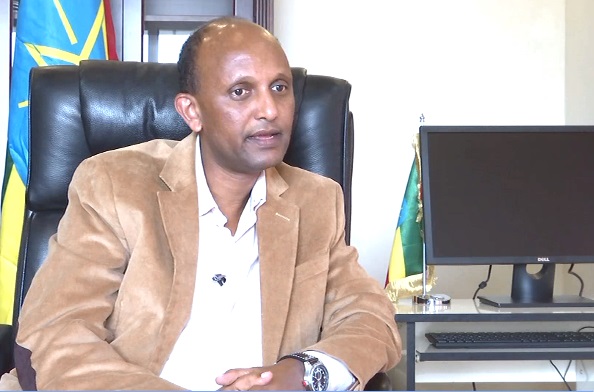Experts Suggest Re-crafting of Draft Hate Speech and Disinformation Bill - ENA English
Experts Suggest Re-crafting of Draft Hate Speech and Disinformation Bill

ENA,February 6/2020 The revised draft Ethiopian Hate Speech and Disinformation bill needs to be defined in a very narrow way that there would be no infringement of fundamental freedom of expression and media engagement, some experts said.
The government has submitted a daft revised law aimed at tackling the ever-increasing problem of hate speech and disinformation in the country in April,2019.
Regulating problematic online content has become a pressing issue in Ethiopia and its particular dangerous contents via social media.
In an exclusive interview with ENA, Ethiopian Human Rights Commission (EHRC) Chief Commissioner Daniel Bekele said the law is necessary, given the recent abuse of social media which is used as tool to incite conflicts and violence.
"I do appreciate the need why Ethiopian authorities are currently considering hate speech and disinformation law. We have seen that the social media platform is used as tool to incite conflicts and violence in this country. That is why the authorities are considering the need for such a law," he noted.
Yet, the chief commissioner has reservation that Ethiopia had a history of using such laws to restrict the right to freedom of expression and suppress media freedom. So, "it has to be carefully drafted without infringing core freedom of expression," he stressed
Noting the global experience on how such laws have been used as an instrument to silence media, Daniel stated that Ethiopia has to, therefore craft this bill in as narrow possible way so that it cannot give room to suppress freedom of expression.
“The central message is not so much about questioning the need. It is about crafting a hate speech law in as narrow possible way that it cannot be open for abuse and making sure that it does not infringe our right of participation in the media,” he elaborated.
The chief commissioner, who was also a human rights advocate, noted that Ethiopian Human Rights Commission did raise its concern and gave feedbacks on possible wide interpretations of the draft law at the parliament hearing.

The lawyer and newspaper columnist Webeshet Mulat said adopting hate speech and disinformation law is crucial for Ethiopia to counter serious crimes such as incitement for genocide, incitement for crime against humanity and so on.
Even though the international covenant on civil and political rights clearly allows adopting a hate speech law, the newly proposed Ethiopian bill has profound implications on human rights and freedom of expression.
"I have seen the proposed law and it has some gaps and even contradicts the constitution. All the articles have to therfore be defined very carefully. The draft bill does not also provide any substantive delineation between the conventional and social media," the lawyer stated.

Addis Fortune newspaper Managing Editor, Tamrat Gebregiorgis said on his part that the law seems designed to silence freedom of expression and media participation.
"What I am saying is there is no evidence that establishes correlation between serious violence that is taking place in Ethiopia today and speeches that are considered to be hateful," he pointed out.
“There are other fundamental factors they have to do with the way the country structured, the way the government is established, the way the state is operated, inequality in the society high an emplacement rate and lack of consensus in Ethiopia to the very fact that people don’t agree what the definition of Ethiopia.”
Noting that hate speech is not a primary factor in driving such violence in Ethiopia, the managing editor stated that hate speech is just a symptom of deep-rooted socio-economic and political problems that have not been addressed.